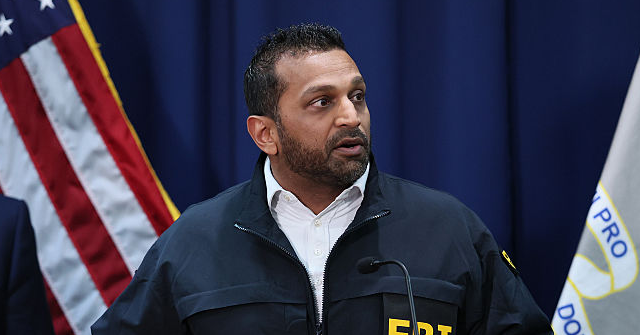Copyright forbes

Research from Cornell showed that empathy and interpersonal training can boost guest-satisfaction scores. Earlier this year, a loss prevention supervisor at a hotel in Alabama was asked to check in on a certain guest’s room. Housekeeping had reported the guest and situation as “not feeling right.” And when the supervisor knocked on the door, he found a man in the midst of a room that was in complete disarray. In the same situation, most supervisors would jump to frustration, anger, or even fear. Then, they’d likely remove the guest. But this supervisor acted differently. He expressed concern and asked questions. He learned that the guest’s spouse had recently passed away, and now he was spiraling into despair. The supervisor spent time with the guest to understand the circumstances and show that he cared, then referred the guest to outside help, and the guest accepted. A couple of weeks later, the guest that was involved approached the Director of that original supervisor at a soccer match and said, “Your employee saved my life.” “That supervisor’s approach is the epitome of emotional intelligence,” said Mike Stover, the Corporate Director of Talent & Culture at PCH Hotels & Resorts. “To walk into an unknown situation and find out it's significantly more complicated than you ever imagined. And then to be able to immediately turn it on and connect with that individual in a deep way, to diffuse the situation, and bring that situation back from the edge.” This example represents emotional intelligence at its most extreme: Life-and-death stakes, high stress, deep empathy, and immediate connection-building. But the same core emotional intelligence skills that enabled this supervisor to respond so swiftly and effectively can be applied across the hospitality industry on a daily basis to improve guest satisfaction and employee retention. Research from the Cornell School of Hotel Administration showed that empathy and interpersonal training at one hotel boosted guest-satisfaction scores. Mike Stover, Corporate Director of Talent & Culture MORE FOR YOU How EQ Drives Guest Satisfaction at PCH Hotels & Resorts Based in Mobile, Alabama, PCH Hotels & Resorts manages eight full-service Marriott properties and several resort destinations across the state. The company is “relationship-driven” and operates under the mission of “Hospitality with heart and soul.” The internal tagline of the company is simple, “care for people first”. Across Marriott’s global portfolio, PCH’s hotels consistently rank among the top eight percent in Guest Satisfaction Scores, with several Renaissance properties all in the top nine globally. In recent years PCH has been the top-ranked Marriott franchise partner in the key metric of guest intent to recommend. “We joke that it’s because we’re from Alabama and practice southern hospitality,” Stover said, “but really, it’s because we train people to turn on the humanity side of their brain. Our success really is because of our people and how they care for the guest and each other.” The company’s retention is equally remarkable. Many general managers have been with PCH for over fifteen years—rare longevity in an industry known for burnout, high turnover, and management moving properties every few years. The Emotional Demands of Hospitality Few industries stretch emotional intelligence so thin. In hospitality, every shift is an exercise in reading the room—sometimes literally. At one end of the lobby, a couple might be celebrating their honeymoon. A few doors down, a family could be mourning the loss of a loved one. Down the hall, a corporate team is frantically preparing for a product launch. “You have to recognize that every single person wants to be interacted with differently,” Stover explains. “It’s about sensing what they need, not assuming.” And that’s before factoring in the internal stress. Turning over an entire hotel between two major conferences can mean working late into the night, cleaning hundreds of rooms, and resetting dozens of event spaces before sunrise. “Everyone’s stressed out, everyone’s tired, and yet you still have to be good to each other,” Stover says. “That’s when emotional intelligence is really tested.” In an industry where workers are often overlooked or disrespected by guests, that mindset makes all the difference. “To be able to say, ‘That doesn’t reflect on me’—to let it go instead of absorbing it—that’s emotional intelligence at the highest level,” Stover said. Building EQ Into Every Level of Leadership Stover’s team trains leaders across three different programs, each touching on emotional intelligence: Leadership Academy: A mandatory five-class program for all people leaders. Leaders build self-awareness and social awareness through DISC and StrengthsFinder assessments. Then they develop their emotional intelligence via courageous conversations training and Dr. Travis Bradberry’s emotional intelligence book and assessment. Leadership Leap: This program is for emerging leaders. It covers a lighter version of each of the five courses taught in the academy. Level Up: A year-long mentorship-based program for selected managers. “Sometimes the question isn’t, ‘How do I get promoted?’ It’s ‘How do I keep growing right where I am?’” Stover explained. Stover’s Favorite EQ Strategy: Asking Better Questions Stover’s favorite EQ strategy is deceptively simple: asking better questions. On his desk, he keeps an Impact Deck, a set of cards with thought-provoking prompts on each side. The front might ask, ‘What was your favorite vacation?’ The back flips to something deeper: What made that experience meaningful to you?’ “When appropriate, I use the deeper one,” Stover says. “It pushes me to go beyond small talk. I’m not worried about being interesting, I’m trying to be interested.” That curiosity—the impulse to pause and learn rather than rush and react—is what Stover sees as the foundation of EQ. “If you’re listening and asking better questions,” he says, “you can navigate almost any situation.” The Heart of Great Hospitality Stover is especially excited that PCH Hotels & Resorts seeks to expand into new properties. Their retention is so strong that it would be a great opportunity to promote well-deserving employees. He said, “Our biggest challenge isn’t turnover like many people face in hospitality. It’s finding enough places for our talented people to grow.” That’s a rare problem in hospitality and a telling one. It shows that the same emotional intelligence that drives guest satisfaction also fuels retention, loyalty, and long-term success. Kevin Kruse is the Founder + CEO of LEADx, an emotional intelligence training company. Kevin is also a New York Times bestselling author. His latest book is Emotional Intelligence: 52 Strategies to Build Strong Relationships, Increase Resilience, and Achieve Your Goals. Editorial StandardsReprints & Permissions



